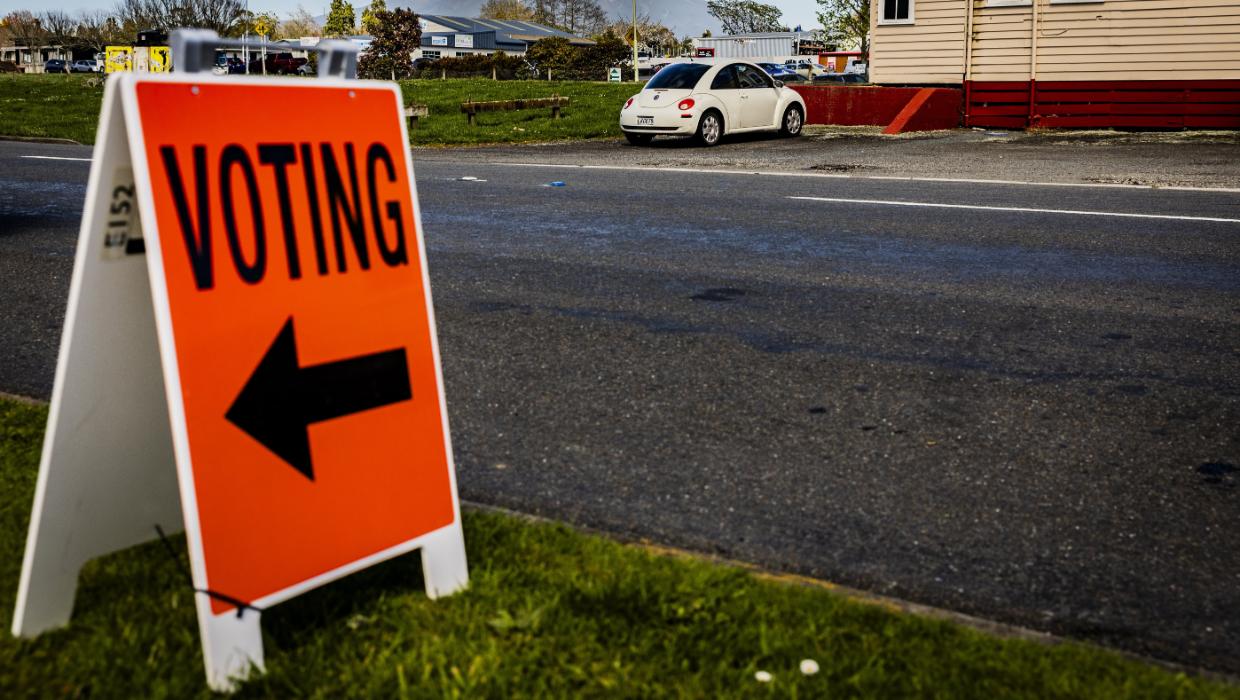Politics
Electoral Commission Challenges Government’s Vote Restriction Bill

The Electoral Commission has asserted that proposed government measures to restrict voter registration will not expedite the counting of votes in New Zealand. Justice Minister Paul Goldsmith is advancing a bill that would prevent citizens from enrolling to vote two weeks prior to election day, claiming this change would facilitate a faster final vote count. Goldsmith aims to deliver final results within 14 days after the election, six days sooner than in 2023.
During a session with the Justice Select Committee, the Electoral Commission clarified that they would continue to target a 20-day timeframe for final vote counts, regardless of whether the bill is enacted. Chief Electoral Officer Karl Le Quesne indicated that the anticipated increase in special votes necessitates rigorous integrity checks, thereby maintaining the 20-day requirement.
Le Quesne emphasized that the commission would strive for this timeline even if the proposed law does not pass. “We would still work to 20 days,” he stated, noting that adjustments in planning and prioritization could be made without the need for additional funding. He also highlighted that the commission did not endorse the proposed law change, which received significant criticism from various experts during the committee meeting.
Historically, New Zealanders could enroll to vote until the day before elections, a practice that has been in place for decades. Since 2020, voters have been allowed to enroll on election day itself. In the previous election, approximately 230,000 voters registered either on the day or in the lead-up to the election, a group that would be excluded under the new regulations.
Goldsmith defended the bill, referencing advice that indicated a need to address the growing number of special votes to prevent delays in the final count. “The final vote count used to take two weeks; last election it took three,” he explained. “The clear advice we had was that one of the primary reasons for this was due to the massive increase in special votes.” He expressed the government’s expectation that reforms, including automatic enrollment, would ultimately streamline the voting process.
Legal expert Graeme Edgeler criticized the potential changes, noting that the last time individuals were prohibited from enrolling the day before an election was in 1949. He cautioned that many voters, especially younger individuals, may be unaware of this significant alteration to a long-standing practice. “No one under the age of 100 will have ever voted in a New Zealand parliamentary election where enrollment on the Friday before the election was prohibited,” Edgeler remarked.
The New Zealand Law Society has voiced serious concerns regarding the bill, emphasizing the lack of bipartisan input and the potential violation of the Bill of Rights Act. The society contended that there is insufficient evidence to support claims that the bill would expedite vote counting, echoing Edgeler’s skepticism.
The Human Rights Commission also raised alarms, suggesting that young voters could be disproportionately impacted by the proposed changes, and criticized the government for not consulting civil society prior to the bill’s introduction. Officials from the Ministry of Justice have warned that the proposed restrictions could negatively affect voter turnout without guaranteeing a quicker count.
Attorney-General Judith Collins confirmed that the bill contradicts the Bill of Rights Act, further complicating its passage through legislative processes. In response to concerns raised about disenfranchisement, Goldsmith maintained that the messaging regarding enrollment would be clearer in the upcoming election. “Around 110,000 enrolled or updated their enrollment details on election day last year only because they were told they could,” he stated.
ACT Party leader David Seymour stirred controversy by labeling those who fail to enroll early as “dropkicks,” a remark that has drawn criticism amidst the ongoing debate over voting rights and accessibility in New Zealand.
As discussions surrounding this bill continue, the implications for voter participation and the integrity of the electoral process remain at the forefront of political discourse in the country.
-

 World7 days ago
World7 days agoPrivate Funeral Held for Dean Field and His Three Children
-

 Top Stories1 week ago
Top Stories1 week agoFuneral Planned for Field Siblings After Tragic House Fire
-

 Sports3 months ago
Sports3 months agoNetball New Zealand Stands Down Dame Noeline Taurua for Series
-

 Entertainment3 months ago
Entertainment3 months agoTributes Pour In for Lachlan Rofe, Reality Star, Dead at 47
-

 Entertainment2 months ago
Entertainment2 months agoNew ‘Maverick’ Chaser Joins Beat the Chasers Season Finale
-

 Sports3 months ago
Sports3 months agoSilver Ferns Legend Laura Langman Criticizes Team’s Attitude
-

 Sports4 weeks ago
Sports4 weeks agoEli Katoa Rushed to Hospital After Sideline Incident During Match
-

 Politics2 months ago
Politics2 months agoNetball NZ Calls for Respect Amid Dame Taurua’s Standoff
-

 World2 weeks ago
World2 weeks agoInvestigation Underway in Tragic Sanson House Fire Involving Family
-

 Entertainment3 months ago
Entertainment3 months agoKhloe Kardashian Embraces Innovative Stem Cell Therapy in Mexico
-

 Sports4 weeks ago
Sports4 weeks agoJamie Melham Triumphs Over Husband Ben in Melbourne Cup Victory
-

 Top Stories1 week ago
Top Stories1 week agoShock and Grief Follow Tragic Family Deaths in New Zealand



















